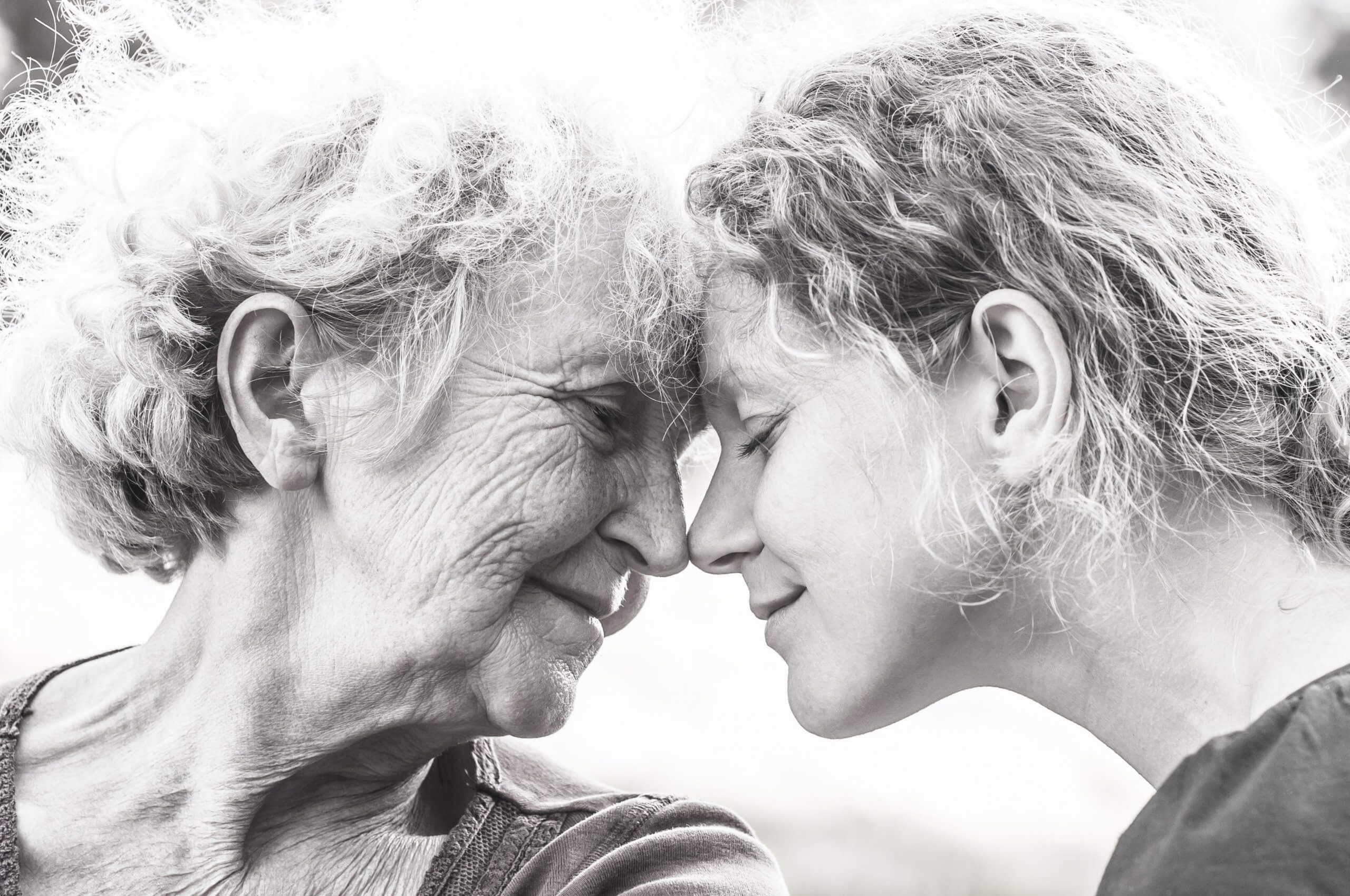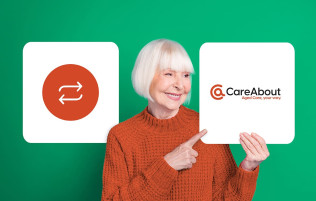What support is available for carers?

There comes a time in most people’s lives where parents or loved ones are facing age-related decline, or illness, and you take on some or all of their caregiving.
You might feel alone and isolated, overwhelmed and unsure of what you should or shouldn’t be doing. Know that you aren’t alone. There are a lot of people in the same situation as you are. About 11% of the population are carers for their loved ones. That is more than 2.7 million people.
In Australia, there are some great organisations providing support for carers, as well as generous payments from the Government to help you manage your carer duties.
What organisations in Australia are available to support carers?
Carer Gateway
Carer Gateway is the Australian Government resource centre for carers. The website has a huge range of support services and resources, as well as information and access to financial support. Carer Gateway can connect you with local support groups and point you in the right direction so that you can find the help you are looking for. Carer Gateway’s support services include:
- Mental health carer support
- Emergency respite
- Networking and social support
- Education and coaching
- Counselling
Contact Carer Gateway on 1800 422 737, Monday-Friday between 8am-5pm.
Carers Australia
Carers Australia is a national peak body that represents and provides a voice for unpaid carers in Australia. Their mission is to “work to improve the health, wellbeing, resilience and financial security of carers and to ensure that caring is a shared responsibility of family, community and government”.
They provide a wealth of information for carers including advice on how to care for people with specific illness or disability, how to take care of your own mental health, and how to continue caring safely during the pandemic.
Carer and Community Support
Carer and Community Support is an organisation with over 30 years’ experience in supporting carers. They are a fantastic resource for any carer, giving expert advice, hosting events for carers, and offering low-cost services to help to give you a break from your carer duties.
Carer and Community Support can be contacted on (08) 8433 9555, Monday to Friday, 9:30am – 3:30pm.
Young Carer Bursary Program
The Young Carer Bursary Program assists young carers aged 12-25 years to continue their education by providing financial assistance. The program offers 1592 bursaries of $3768 each year with the goal to reduce the need for young carers to undertake part-time work whilst studying and managing their caring responsibilities.
Contact that Young Carer Bursary Program on 1800 756 238.
Friends for good
Friends for Good is a not-for-profit volunteer group that exists to tackle loneliness in Australia. Many carers can feel like they have nobody to talk to, so if you’re struggling with loneliness, Friends for Good are just a phone call away. If the person you are caring for is also feeling lonely, you can recommend and help them to reach out to Friends For Good as well.
Friends for good can be reached on 1800 424 287 from 10am-8pm, 7 days a week.
Mind Australia
Mind Australia is a support organisation for people who are caring for someone with mental health issues. They offer counselling and peer support, online forums, education, respite and carer events. They’re a fantastic resource.
Mind Australia are available 24/7 and can be contacted on 1300 286 463.
Payments available to carers
Carers may be eligible to receive a range of government-funded payments that aim to assist with living and caring expenses. Available payments are:
Carer Payment
You may be eligible for the Carer Payment if you are providing constant care to someone who is frail aged or is living with disability. To receive the Carer Payment, both yourself and the person you are caring for must meet Australia residency requirements and income and asset requirements.
For the most recent Carer Payment amounts, visit Services Australia here.
Carer Allowance
If you give additional daily care to someone who is frail aged or living with disability, you may be eligible for the Carer Allowance. There is no asset test for this payment but there is an income test. If you and the person you are caring for are both eligible, the Carer Allowance payment is $153.50 per fortnight (July 2024).
Depending on your circumstances, it is possible to receive both the Carer Payment and Carer Allowance.
Carer Supplement
If you receive either the Carer Payment or Carer Allowance, you are automatically eligible for the Carer Supplement. This subsidy is up to $600 (July 2024) and will be paid annually.
Respite for carers
Respite care is when someone else takes care of the person you normally take care of for a period of time so that you can have a break.
In-home respite care
Respite care can be provided at your loved one’s home through a Home Care Package, or if you’re paying privately. It can also be provided in an Aged Care Home, which is often the best option for those who need ongoing, continuous carer support for most tasks.
Community Respite Care
Community respite is provided to eligible Australians through the Commonwealth Home Support Program (CHSP). There are three different options of community-based respite care: centre-based respite care, cottage respite, or flexible respite.
- Centre-based respite care is provided during the day only, at specific centres in the community. Centre-based respite is available during the day. It provides you with the opportunity to talk and interact with other people, and usually takes place at a day centre, club or residential setting. Day respite often runs from 10am to 3pm and may include transport to and from the centre.
- Cottage respite care is care provided overnight or over a weekend, and takes place in the community, or in the home of a host family
- Flexible respite is usually when a paid carer comes to your home to take care of you
Respite in an Aged Care Home
Your loved one can access respite in an Aged Care Home for a few days through to a few weeks at a time, depending on the break you need. In total, you can access 63 days of respite care annually (plus an additional 21 days if approved by an Aged Care assessor).
Fees for respite in an Aged Care Home
If you are accessing respite care in an Aged Care Home, you will be charged the basic daily fee. This is set at 85% of the pension rate and is currently $63.57 per day (as at 20 September 2024).
Some providers may also charge a booking fee (this cannot be more than a full week’s fee or 25% of the fee for the entire stay—whichever amount is the lowest). Some Aged Care Homes may also charge Additional service fees or Extra service fees. These fees are for ‘luxury, hotel-style’ services and are set by the Home, not by the government.
Emergency respite care
If you suddenly fall ill or experience an emergency, you can access emergency respite care for your loved one.
If you need emergency respite care, call Carer Gateway on 1800 422 737.
Peer support groups for carers
Caregiver support groups are a great way to share your own experiences and hear about other’s, as well as gather tips and advice from people who have already been through the caregiver role. These groups can be a safe environment where you can share your thoughts and worries without fear of judgement.
Talking to people who are in a similar situation as you are can be incredibly helpful and can make you feel at ease, as well as getting advice and hearing about the experiences of others. Making decisions on behalf of loved ones, particularly if they have dementia or other cognitive decline and can no longer make decisions on their own, can be extremely stressful and overwhelming.
You can find some great peer support groups through Carer Gateway.
Facebook Support Groups
Facebook groups are also incredibly helpful and have large communities of people who are in similar situations. Some Facebook Groups supporting carers are:
Carer Support Group (Australia)
Caring for Elderly Parents In Australia
Carers Australia
These groups are closed, private groups, so you can feel comfortable knowing that none of your friends or family (or anyone outside of these private groups) will see any of your questions or comments. Facebook Groups are moderated by admin members, and people who are providing anything other than helpful commentary are generally banned.
How to join a private Facebook Group
Private Groups on Facebook are known as “closed” groups and you need to request to join. Often, once you click the “Join Group” button on the Group’s Facebook page, you will be asked a few questions (but not always). The questions usually are in place to make sure you are genuinely interested in the group, rather than being there for advertising, marketing or trolling reasons.
To join, search for the group you’re looking for, navigate to their page and click the “Join Group” button directly underneath the page’s cover photo. If they have qualification questions, answer them honestly and then click “Submit”. It may take a day or two for the administrator of the Group to grant you access.
Do you need help finding care services for your loved one?
If you’re looking for respite care, or Home Care services, CareAbout can help you find excellent and trusted providers. Our guidance is free for you and your family and can save you hours of time researching options.








